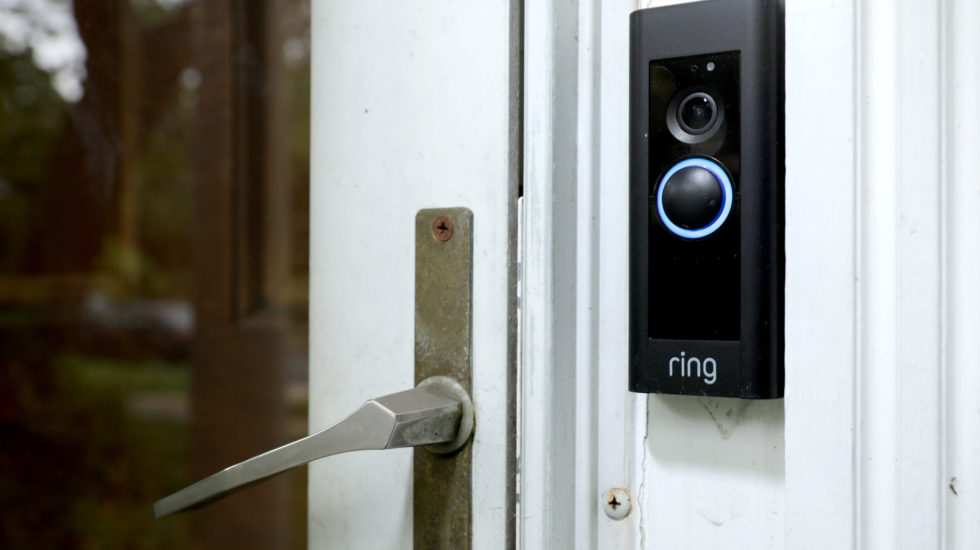Some call it an expanded version of the common “neighborhood watch” crime-fighting organizations found in most American cities.
Others say it’s the ominous beginning of a U.S. “surveillance state.”
Either way, or something in between, the facts are that the Amazon-owned doorbell-camera company Ring is working directly with police departments nationwide, giving them access to vast new video resources, reports the Washington Post. (Amazon founder Jeff Bezos owns the Post.)
More than 400 police forces are already using video data from the Ring devices and, in some cases, handing out the doorbells free to homeowners.
The company-police partnerships “blanket entire regions beneath Ring’s camera network, including about a dozen agencies each in the metropolitan areas surrounding Chicago, Dallas, Detroit, Kansas City, Los Angeles and Phoenix,” the Post says.
In Milwaukee, reports CBS station WDJT-TV, the program “gave free or discounted Amazon Ring doorbell cameras to homeowners willing to share surveillance footage with police to help with an investigation.” More than 170 of the doorbells were handed out in one police district covering almost 23 square miles of Milwaukee’s south side.
“The mission has always been making the neighborhood safer. We’ve had a lot of success in terms of deterring crime and solving crimes that would otherwise not be solved as quickly,” a manager for the Ring Neighbors App told the Post.
“But legal experts and privacy advocates have voiced alarm about the company’s eyes-everywhere ambitions and increasingly close relationship with police, saying the program could threaten civil liberties, turn residents into informants, and subject innocent people, including those who Ring users have flagged as ‘suspicious,’ to greater surveillance and potential risk,” the Post says.
An analysis by Vice’s Motherboard tech-news service “found that the majority of people reported as ‘suspicious’ on the Neighbors app were people of color,” the Kansas City Star noted in a recent article.
“Even though it’s an opt-in process for individual residents, it’s not an opt-in process for people who are essentially subject to a constant police surveillance state,” a Kansas ACLU official told the Star. “When the government is employing all these cameras that can cover someone’s moves across an entire neighborhood, that’s a surveillance state.”



